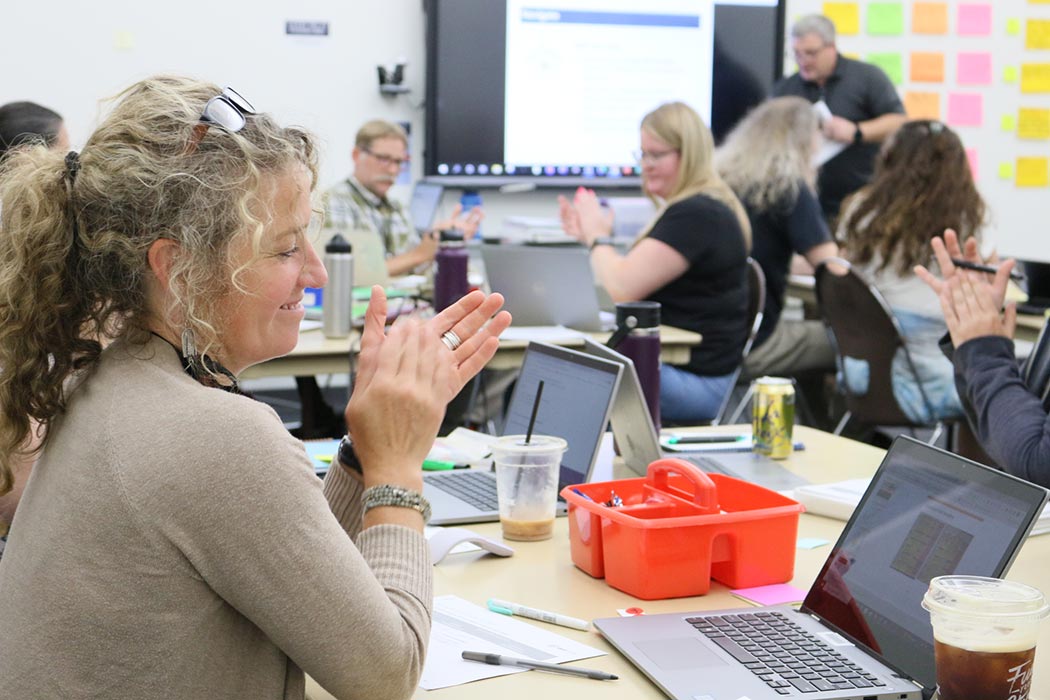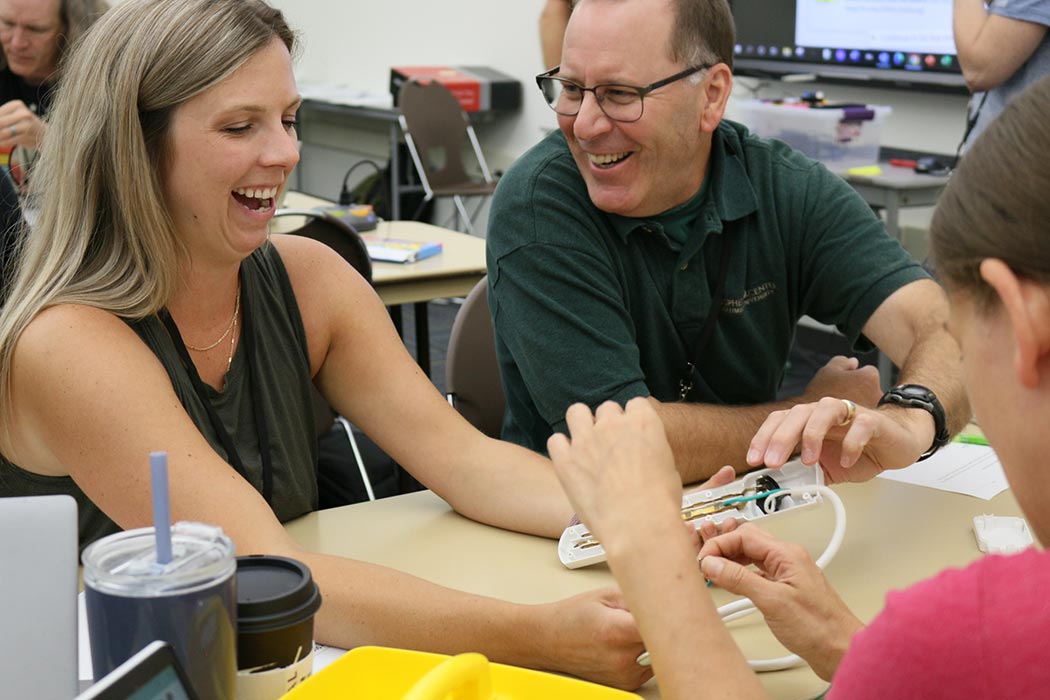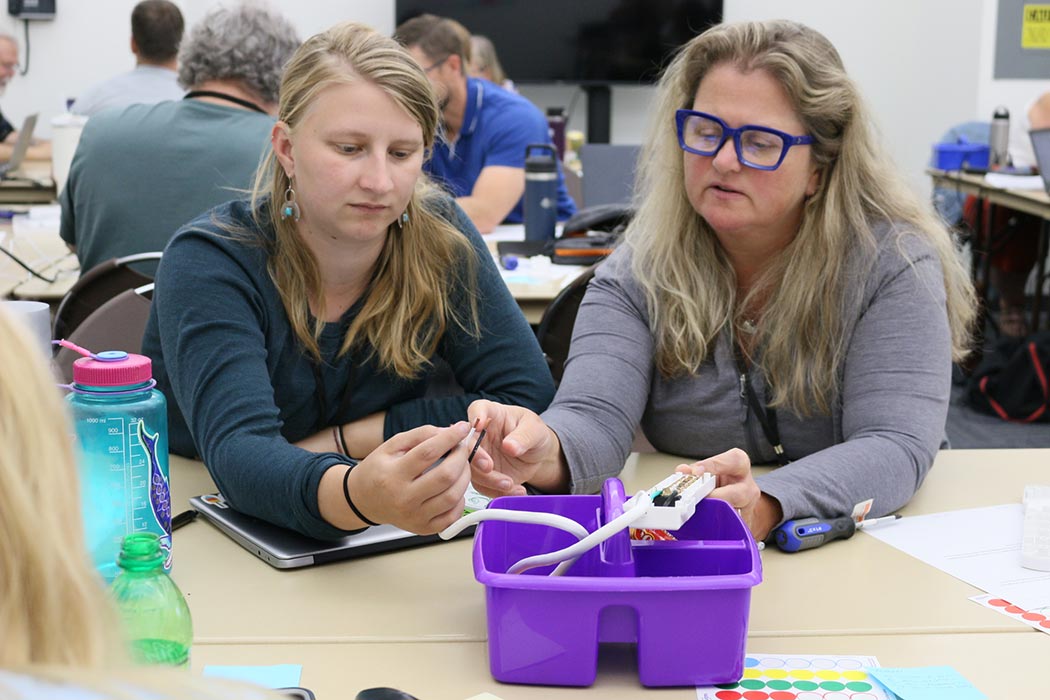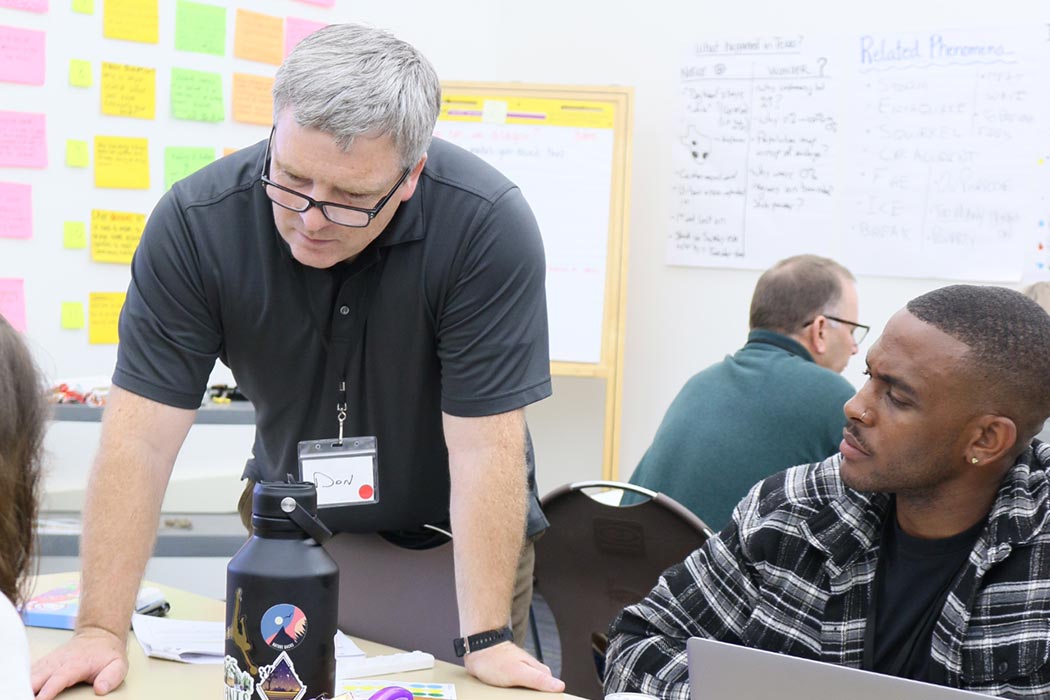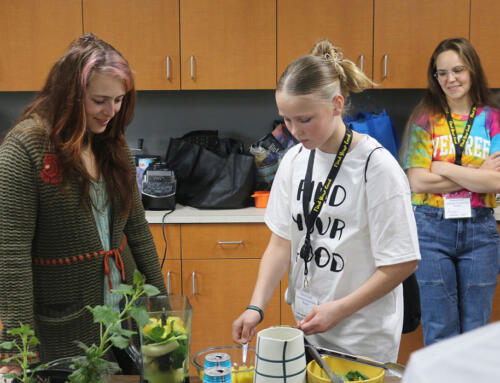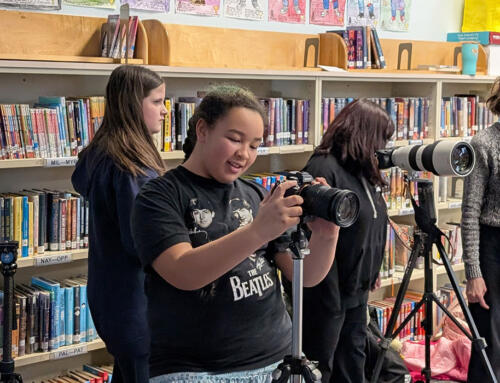“We need to stop thinking, ‘Is this student good enough for my science class?’ and start asking, ‘Is my science class good enough to engage all students?’” This was the question posed by Jamie Yoos, a chemistry teacher and OpenSciEd facilitator from Bellingham, Washington, that guided this year’s OpenSciEd High School Summer Institute.
This summer, over 100 educators from across 30 Washington state school districts gathered at ESD 112 in Vancouver, Washington to learn how to teach the new high school biology, chemistry, and physics units that are part of the project-based curriculum called OpenSciEd. Participants approached the material from both the role of the student and the educator, providing them with a hands-on professional learning experience.
One participant expressed appreciation for “how the storyline of the unit emerges based on student experiences, discussions, and questions during each lesson so that students can see and feel that they are ‘driving’ and moving the learning forward.”
OpenSciEd is a free, customizable, research-based science curriculum focused on exploratory, hands-on learning that encourages students to engage more fully in various topics and connect scientific concepts to real-life scenarios and experiences. Designed to increase accessibility to all students and educators, OpenSciEd materials are field-tested to ensure equity, efficacy, and usability, and they are designed and aligned to Next Generation Science Standards, which set the expectations for what students in grades K-12 should know and be able to do.
When asked what they plan on taking back with them to their classrooms, one teacher loved that “student thinking is recorded and shared with each other. All students can contribute and feel like their knowledge matters.”
The OpenSciEd Summer Institute was made possible by ClimeTime, a program that promotes climate education throughout Washington State, and through a collaboration with the AESD network and OSPI. Learn more about future OpenSciEd professional learning opportunities
Check out the AESD network to learn more about future OpenSciEd professional learning opportunities, or connect with a regional science coordinator at Educational School Districts throughout Washington for additional details.

